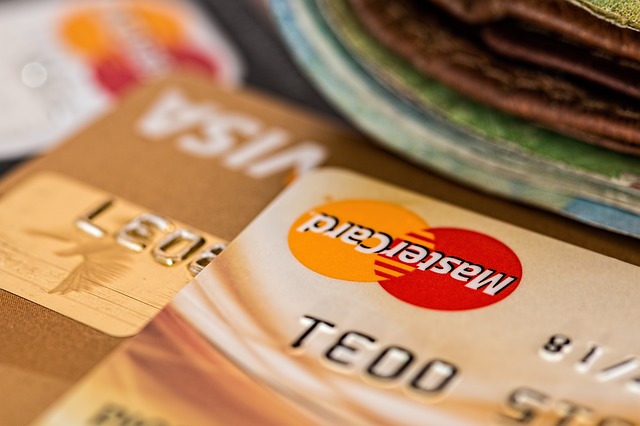If you start falling seriously behind on your bills with simple prioritization and negotiation not enough to catch up, you still have some options available to keep your finances under control.
One of the most straight-forward options is Debt Consolidation.
When to Consider Debt Consolidation
Most adults have at least half a dozen creditors, such as credit card companies, banks for a mortgage, car loan providers, student loan providers, and basic utility companies. If a serious spending shock hits, such as losing your job, you may start falling behind on payments for several creditors at once.
Simply prioritizing your bills and negotiating with your creditors can get most people through tight money situations for a month or two, but it can only work for short periods of time.
After a couple of months, even the savviest negotiators will find themselves getting stuck with mounting late fees, finance charges, and angry calls from creditors. Each late payment is also lowering your credit score, which will hurt your chances for getting other lines of credit in the future.
What It Means to Consolidate Debt
This is where “Debt Consolidation” comes in. Consolidating your debt means taking out one big loan, and using that to pay off all outstanding balances from all your previous loans.
There are a lot of great reasons to go for debt consolidation as soon as you find yourself in hot water.
Preserves Your Credit Rating
Every time you make a late payment on your credit card or other loan balance, your credit rating will take a hit. Miss enough payments, and you will have a very hard time securing any loans, even many years later.
On the other hand, if you consolidate your debt and pay it off quickly, your credit rating can actually improve. Paying off all the outstanding balances means no more bad reports on your credit history. Debt consolidation acts like any other loan – making payments on-time will boost your credit rating.
Keeps all your creditors happy
Remember: the most important concern for any of your creditors is that they get paid, and the sooner the better. Consolidating your debts quickly and getting all outstanding balances paid off builds goodwill with your creditors. This means they will usually be more flexible in the future if you hit another rough patch, because they know you will come through.
Lowers Your Payments
Once all your outstanding balances are paid off, finance charges and late fees are gone too. This means the amount due each month is just a single payment towards the principle and interest – the same as any other loan. The interest rate on consolidated loans is almost always much lower than the late fees and finance charges you will get from each of the individual outstanding balances.
What this means for you is that a consolidated loan will keep your credit healthy and growing, and lower your monthly payments to pay off the same principle in debt.
How to Consolidate Debt
Consolidating debt means taking out a loan to pay off other outstanding balances. Like all loans, there are two main types.
Unsecured Loans
Getting an unsecured debt consolidation loan is very rare. Most creditors are very wary of people who need debt consolidation loans, because it means they have already let their debts get out of control.
The exception to this is simply using your credit card to pay off all other balances, if you have a sufficient credit limit. If you already pay most of your bills using your credit card, you are consolidating your debts without even realizing it. Many people prefer this simply to keep all their payments in one place, making them easier to track.
The biggest downside of using credit cards, or any other unsecured loan, to consolidate your debt is the finance charges. Unsecured loans almost always have higher interest rates. This means you might not be saving very much money by consolidating everything on your credit card, then making minimum payments.
You also cannot use your credit card to pay off other credit card debt. If credit card debt is one of your problems to begin with, you probably will not be looking at unsecured loans for consolidation.
Secured Loans
Most types of loan consolidation involve a secured loan, usually a home equity loan (a second mortgage). This means you will use the equity built up from your home to take out a new loan. The amount of debt you can consolidate is dictated by how much equity you have for use as collateral. If your debts are greater than the equity you have built up in your home, you are considered insolvent.
If you are a renter, there are also some types of secured loans that can use your car or other property as collateral. Unfortunately, these usually fall under “Payday Loan” or “Pawn Shop” type lenders, which can have excessively high finance charges. Taking these types of loans is more likely to drive you farther into debt than help pull you out. If you are not able to find any other types of consolidation loans, you should investigate other credit counselling services.
Risks of Consolidating Debt
Debt consolidation is not a “Get out of debt” free card. You are simply using existing credit lines and equity to pay off a temporary hardship, and preserve your credit rating.
Risks with Unsecured Loans
If you simply transfer other outstanding debts onto your credit card, you now must grapple with your new credit card debt. Credit cards typically have fairly high interest rates compared to secured loans, which means your interest charge will still be very high (likely nearly as much as you would be paying in late fees, but without hurting your credit).
If you can only afford the minimum payments on your credit card, you are stretched dangerously thin – any other spending shock could force you into default
Risks with Secured Loans
Consolidating your debt with a secured loan is cheaper than using your credit card or an unsecured loan. This makes it a more attractive option, but it comes with its own serious drawbacks.
First, you are wiping out your equity. This means all the value you have been building up in your mortgage (or any other property used as collateral) is gone – you will need to completely pay off the consolidation loan to get it back.
Second, you are still stretched very thin. Missing your payment on a consolidated secured loan is the same as missing a payment on your primary mortgage – it could put your whole house into default, and trigger a foreclosure.
Taking Action
If you are in a position where you cannot simply juggle your bills or negotiate a month or two extension with some creditors to get your head above water, you will need to take action quickly to get out of debt and keep your finances healthy.
Consolidating your debt is often one important part of that process, but it is not a decision to take in a vacuum of other input. If you are in a position where you are considering consolidating your debt, you should first speak with a not-for-profit credit counselling agency in your area to fully explore your options. Debt consolidation is usually one action as part of a larger personal finance plan, not an action to be taken on its own.
The clock is ticking any time you are working with debt. It is always better to ask for help sooner than start to panic later.
Pop Quiz
It appears that this quiz is not set up correctly.



